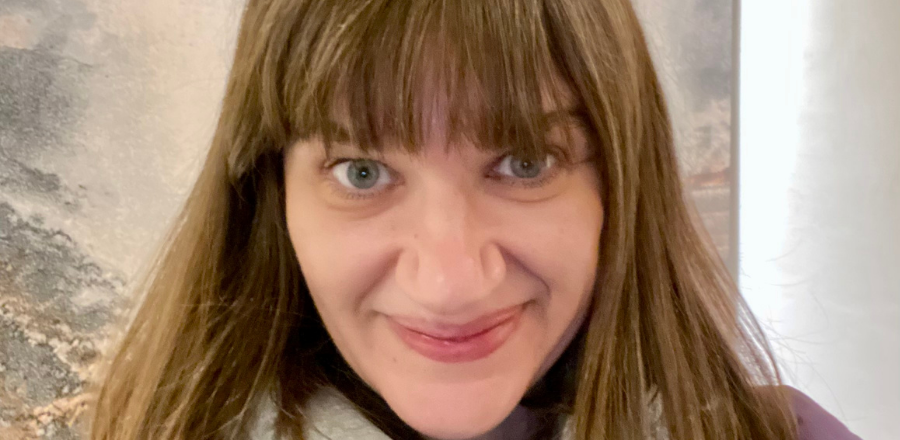Project explores VR versus textbook in teaching psychology

Senior lecturer and Learning and Teaching Advisor Dr Jane Guiller will be exploring the effectiveness of teaching psychology through virtual reality (VR) versus existing methods of textbook or video.
Her new project 'Co-creating immersive learning experiences for on-campus, hyflex and online teaching' was among six projects from School of Health and Life Sciences (SHLS) awarded up to £5,000 to pilot new ideas, developments and projects that bring to life the University's Strategy for Learning 2030 (SfL, 2030) and its transformative education vision.
Dr Guiller is also a Senior Fellow of the Higher Education Academy (SFHEA) and has been involved in developing new ways to use VR to teach psychology for many years.
Other members of the project team are Dr Alex Oliver, Lecturer in Psychology, Associate Fellow of the HEA; Dr Jacqui McKechnie, Deputy Head of Department, Ken Rice, SCEBE Learning Technologist; Gordon Manson, Lecturer and Learning/Digital Skills Mentor at Forth Valley College and alumnus of GCU's Applied Psychology programme.
The plan is to employ three Foundations in Psychology and Digital Psychology students to work with the team over a year to test some of the activities that they will co-design for the Department of Psychology.
Dr Guiller explained: "We've used virtual reality in the department to teach psychology for years now. We are real pioneers in this and started with a development kit of a leading headset before it was even commercially released.
"It has taken a long time to get the set-up right and this is the next stage which allows us to extend and enhance our use of VR and immersive technology for teaching but we need now to work with students to get the design of the activities right as well as properly evaluate the effectiveness of learning through immersive technology."
The project combines knowledge from the previous Edify and Hybrid Delivery projects to create sets of VR and hybrid lessons for teaching psychology.
Dr Guiller said: "We are taking two projects together and working with students to finalise the design and roll out of the activities. The Edify project lets you broadcast an immersive lesson to lots of students online and the Hybrid project allows staff to teach on campus and online simultaneously".
"The first lesson we will develop is to help first-year introductory psychology students learn about brain and behaviour. It will be a fun, engaging lesson that is based on zombies.
"The idea is that you present a zombie in a particular type of behaviour and then the students relate that to the structure and function of the brain. It is using 3D brain models so we are improving on our existing work, where instead of using the 2D textbook images, we have a learning technologist who is building 3D models and animations that we need.
"This will be done by-proxy because we are not at the stage where we would be sending VR headsets out to hundreds of students yet. This is our first step where the instructor uses the headset and peels back the layers of the brain and is able to turn it round to allow the students to collaborate with the instructor in the hands-on elements.
"The other part we are building on is the room scale VR content. We already have a space where we have the advanced room scale VR equipment set up which allows users to freely walk around a play area, with their real-life motion reflected in the VR environment.
"We offer 140 students a year the chance to use a headset first-hand in the psychology department for virtual shoes experiences which let you, for example, play the role as a person with dementia and have to work through tasks.
"The challenge has always been getting the right content but we now have a lot from Stanford University that we can use specifically for teaching psychology. What we've managed to do now as part of the Hybrid university pilot project is that we are able to have students on campus in a hyflex session and we can broadcast the headset feed and what's happening in the lab to students online.
"We have so many good content demos such as you can go underwater and explore what's happening to the coral and climate change or experience what it like to be interrogated as a journalist in an Iranian prison.
"We've all these different experiences which are very emotional so what we are exploring is the nature of that experience and the effectiveness of teaching psychology through VR versus our existing methods of textbook or video.
"With the innovation funding and our student collaborators, we will look at effectiveness of teaching psychology through virtual reality versus our existing methods of textbook or video."
